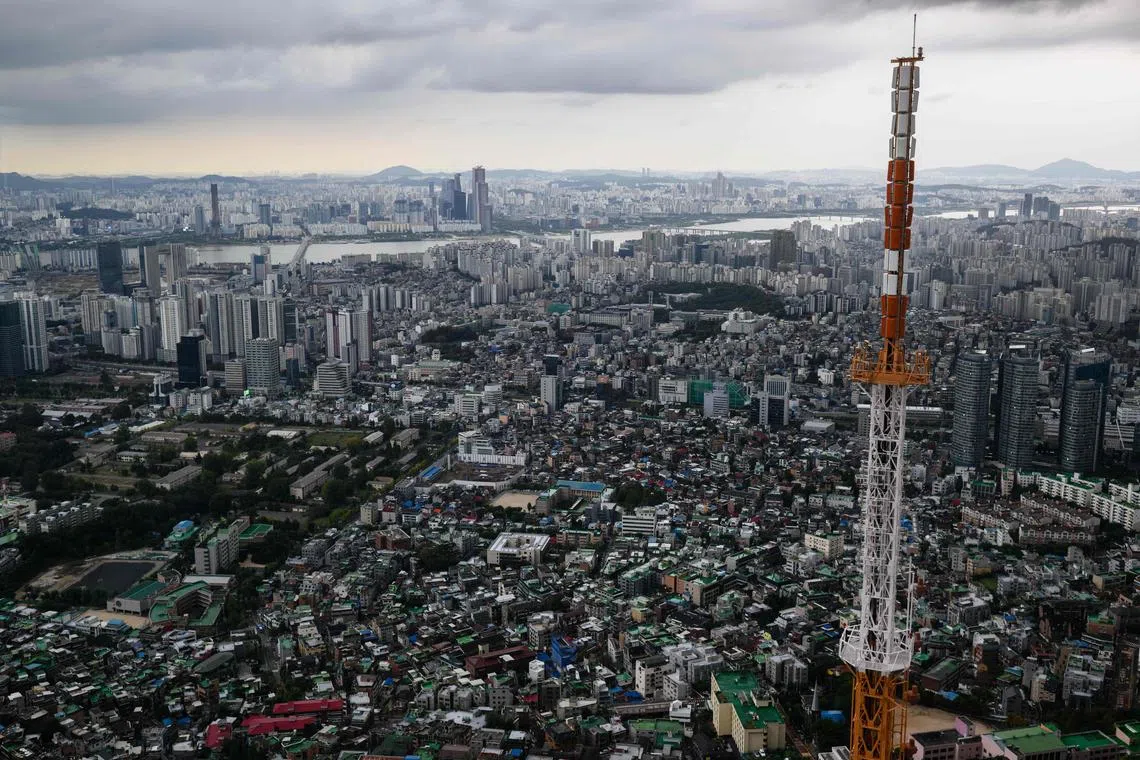Another tough year is on the way for South Korean IPOs
Sign up now: Get ST's newsletters delivered to your inbox

Seoul hosted only four IPOs larger than US$100 million in 2022, compared with 18 the year before.
PHOTO: AFP
SEOUL – South Korea’s new listing prospects are looking rather dim in 2023 as investors continue to question inflated valuations for companies amid rising interest rates.
Apart from the successful US$10.8 billion (S$14.5 billion) listing of LG Energy Solution in January, Seoul hosted only four other offerings larger than US$100 million in 2022. This compares with 18 in 2021 when investors were still willing to ascribe high valuations to tech start-ups.
Major initial public offerings (IPOs) globally have come into focus as central banks begin raising rates aggressively. In South Korea, they face added scrutiny as regulators and investors are concerned about the recent spate of large deals that have created monopolies in the market.
Getting the valuations seen in the past “will not be as easy, given that the tight demand situation is expected to last at least until the first half of 2023”, said Mr Kim Joong-gon, managing director at NH Investment & Securities.
For the market to gain momentum again, it is necessary to see “some consensus” that interest rates have peaked and returns from IPOs are higher than prospects for fixed-income and bank savings, he added.
Proceeds raised in Seoul in 2022 slumped 26 per cent versus the same period in 2021, Bloomberg data shows. While that is a modest retraction compared with the plunge in other major venues such as Hong Kong, The slump would have widened to 85 per cent if LG Energy Solution’s listing was excluded.
Eight large offerings were shelved in South Korea throughout the year, including security services provider SK Shieldus and gaming developer Lionheart Studio, as they struggled to match valuation expectations amid challenging market conditions.
Some of the widely expected listings in 2021 also delivered hefty losses. Mobile payment platform KakaoPay, part of a group once feted by local investors, has lost about one-fourth of its value since its listing in November 2021 as early investors sold stakes as soon as lock-up periods expired.
Shares linked to its parent company, tech conglomerate Kakao, were in the spotlight throughout the year amid widespread disruption to its services. KakaoBank, which also debuted in 2021 following a US$2.3 billion offering, slumped to become one of the world’s worst banking IPO since it listed.
“As the moves by big conglomerates to split off and list their units have become controversies, affiliates at big firms are expected to reduce IPO bids,” Korea Investment & Securities said in a statement to Bloomberg News.
“Recovery of investor sentiment in venture firms is also expected to take time so growth companies such as biotech and artificial intelligence will face more difficulties in IPOs,” it said. BLOOMBERG


